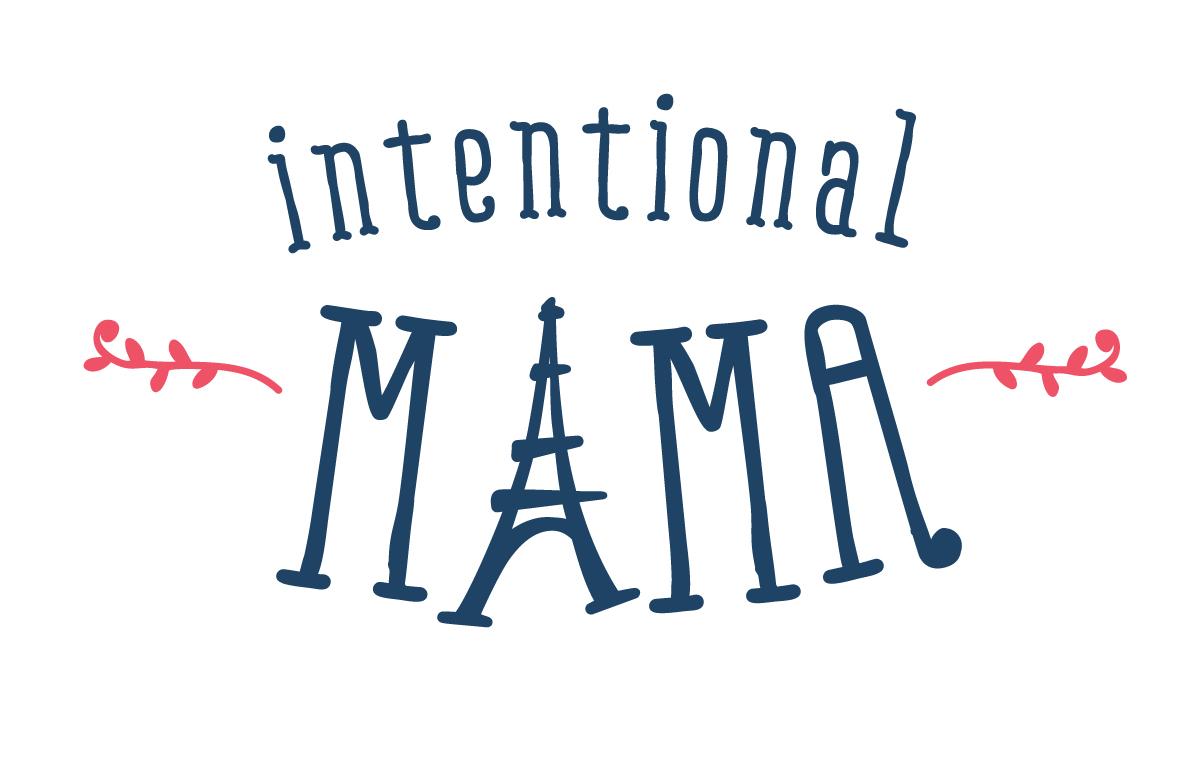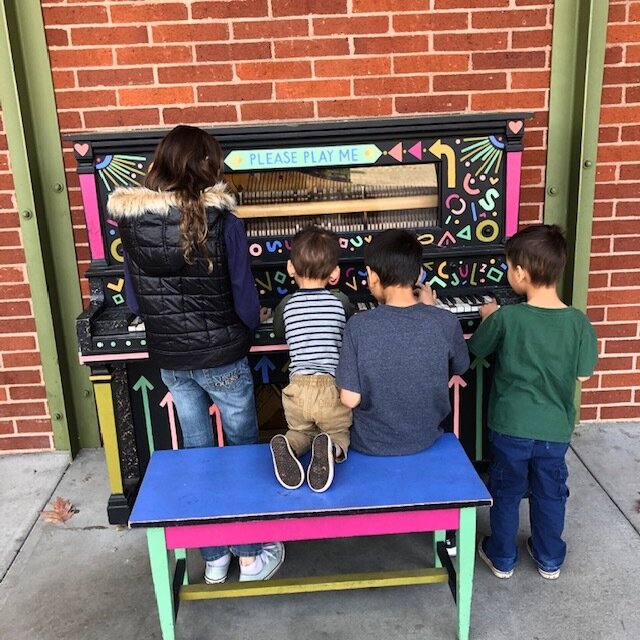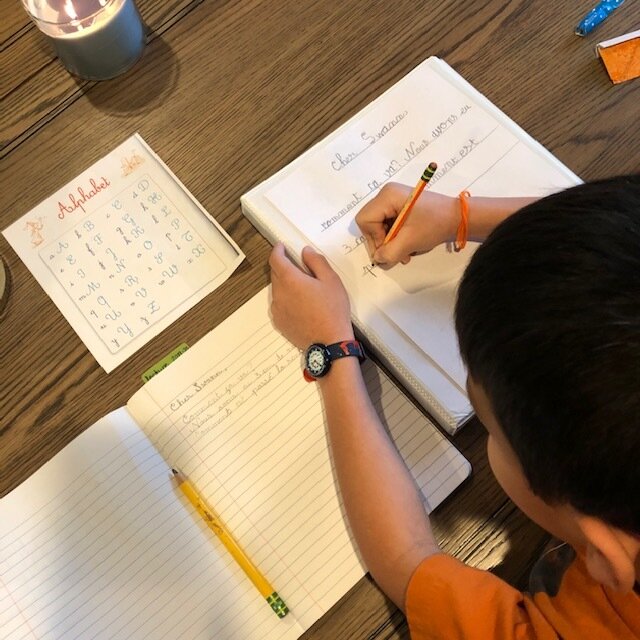Support for Parents Who Suddenly Find Themselves Homeschooling Their Children
What a strange, unprecedented moment we find ourselves in, peering into the foggy darkness of unknowns cast by the spread of COVID-19. Currently here in Oregon (as with more than half of U.S. states), schools are closed through the end of April and possibly through the end of the year. As a result, my husband (a teacher) and our wonderful exchange student are home enjoying the family time with the children and me. (Yesterday our exchange student was interviewed by USA Today about what it's like to be an exchange student in the U.S. right now; you can read the article and find our family photo included in it here or below!)
To stay in America, or go home? Coronavirus pandemic brings stress, fear for international students.
Lindsay Schnell USA TODAY
Published 1:42am ET Mar. 20, 2020
The family changes I have experienced are minor but have still caught me by surprise: my anatomy and physiology final was cancelled this week; next term's class will likely only be offered online, if at all. My family has also been caught in the eddy of the shifting plans for my youngest sister's wedding, long foreseen for this weekend; now she and her fiancé (by their own choice) will be married without any of the invitées or wedding party that they had initially planned to have present. There are so many answers that still need to be determined.
In the midst of this quickly shifting situation, I want to provide my perspective as a long-term homeschooling parent in the hope that I may help some of you who find yourselves educating at home for the first time. Educating at home can be a wonderful experience, but it doesn't often begin as well as we hope it will. Here are the tips that I've learned that could make your situation smoother, along with some favorite resources we're using this year.
Tips for A Successful Homeschool Day:
Routines are helpful but schedules create conflict. Homeschooling rarely looks like “school at home.” An hour or two is plenty for early childhood and lower elementary students; three hours is plenty for teens if they use their time wisely. Ignore the tidy schedules that have suddenly popped up on social media by new homeschooling parents, because while they make it look like you can dominate the homeschool day, these schedules are exhausting and unrealistic for your children. Instead, just establish a basic routine so you can all enjoy learning instead of being a slave to it. Janie Martin of Simple Homeschool lays out a great 3-hour homeschool plan if you need guidance for your routine. In her summary, one hour for essential academics, one hour for books, and one hour for games and hands-on learning experiments is wonderful—and more than enough.
Keep morning chores to a minimum so academic work can be finished before lunch. In our house this year we get a late start (around 9:30am) but we still finish our academic work before lunch. If we don't, it will be done the following day. (Along with minimal chores, my older children's piano and violin practices happen by choice before breakfast—or by reminder after lunch.)
It's nice to have a signal for starting your academic learning time. Light a candle, play a song most everyone loves, or sing together. Our library has a sign saying "sing, dance, read, play—every child, every day.” This makes for joyful learning for any age! We sing a few hymns and French folk songs. I usually choose two songs per month to learn together, and some days we review songs from previous months. Likewise, an ending routine can help: blow out the candle, clear the table, play outside.
Tackle the most challenging academic subject or task first: for my daughter, this is math. For my older son, this is spelling or writing.
If you have more than one child, the more topics you can all learn in unison, the better. However, for students at different levels, it may be better to stagger them at different times. It can be too challenging to switch back and forth between two children both needing different math topics explained.
Don't feel you have to keep your child busy or entertained. Free play (and especially screen-free play) requires self-direction, creativity, and resourcefulness. Let your child develop these in the space that boredom offers.
Some Favorite Academic Resources:
Math: Singapore Math has great, self-explanatory workbooks. (We use their math workbooks in French, available through La Librairie des Ecoles.) Some afternoons after academic time, my 8- and 11-year-olds play fun MotionMath games on the computer. If you get stuck on math concepts with your student, Khan Academy provides free videos.
Reading/Books: Read aloud with your child daily, even if they're in high school. Keep a list of what you read and add a brief note on what you thought about it. (My 11-year-old daughter and I are currently reading The Black Stallion in French; my 8-year-old and I are reading Enid Blyton's Famous Five series in French, and my 5-year-old and I are reading The Dragon's Hoard: Stories from the Viking Sagas. This last story collection is turning out to be more violent than I expected!) Unfortunately I don't get to read with each child every day, but whenever we can, it's a delight. Read poetry when you can. (Poetry tea time is very trendy among homeschoolers now!)
If your library is closed, Abebooks has the best deal on books around, plus their books are listed by independent sellers and most offer free shipping. For French children's book rental, we adore Les Petits Livres.
Audiobooks are fantastic and contribute towards literacy skills too. I borrow them through our library using the Libby App from Overdrive and we listen to them during lunch. We're currently listening to Mary Poppins—it's fun to discover how the literary story differs from the film.
Writing: Write cards or letters to friends, paragraphs about one's favorite things, or a persuasive essay. Write about what you read. Write imaginative stories. Write or compose a song. Sometimes a few sentences is all you get done in a day. This happens to professional writers too.
My eight-year-old writing a letter to a Francophone friend
French/ in French: Sign up here to receive my blog updates by email and I'll send you a list of my family's favorite French resources the same day. Vive le français!
History: We're listening to Susan Wise Bauer's Story of the World, Volume 2, on Audio CD. (There are SOTW activity books as well, but I rarely use ours.) We also listen to history timeline songs through brief Cross Seven videos. Cross Seven provides 10-minute musical memory work videos covering math, scripture, history, latin, grammar, science, math, geography, hymns, and the timeline songs. My family just began using Cross Seven videos this year and my children adore them! We often start our mornings watching the week's brief video, and we usually have it memorized by the third day of watching.
Science: Our homeschool co-op had been focusing on astronomy and earth science. Now that we have social distancing preventing our reunions, I'll be using our beloved Mason Jar Science book for at-home science experiments. We also love combining science with art or the outdoors by drawing plants or animals from our books or outside explorations. Time in nature enriches the soul and instructs us about the natural world.
Our two-year-old learning through free play
Art: Draw. Paint. Sculpt. Create. My 8- and 11-year-olds have chosen an origami-a-day desk calendar again this year and that gives them something to create with joy each day. Lego and other construction toys are ways of learning too.
Life Skills: This time at home is a gift, and it can be used to encourage habits and skills that get overlooked in busier seasons. Why not reward your children for brushing their teeth in the morning, learning to do their laundry, taking their dishes to the sink, cooking or baking, mending a sock, or planting seeds?
Closing Thoughts:
Remember that we all have weak and strong areas of learning. Educating your children is much like feeding them: you can provide the meal, but your child gets to decide how much he or she will eat. You will certainly have challenging days of living and learning together, but this was also true for your children when they were in school—and even when you were in school. Just as you give your children the grace to learn over time, give yourself the grace to learn how to educate differently. May you find joy in the journey.
This post contains some affiliate links, which helps offset the cost of hosting this blog. Merci for supporting Intentional Mama!






